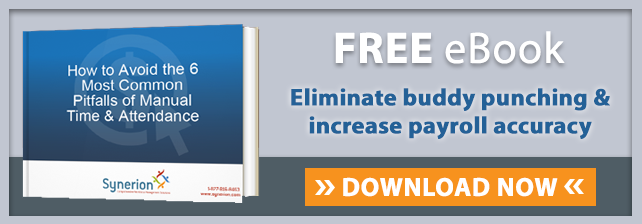 A healthcare staffing system can make the task of workforce management in a busy hospital or a clinic much easier. You may already be relying on such a program but is it the right one for your needs? There are several signs that your healthcare staffing system will have to be upgraded. Here are a few of the most important ones.
A healthcare staffing system can make the task of workforce management in a busy hospital or a clinic much easier. You may already be relying on such a program but is it the right one for your needs? There are several signs that your healthcare staffing system will have to be upgraded. Here are a few of the most important ones.
No Cloud Accessibility
A health care staffing system should be readily accessible. Older software solutions may be lacking cloud accessibility, which many see as a major convenience. Cloud-based accessibility to the data is perfect for the management of a database from any location. Such a health care staffing system is perfect for institutions that have multiple locations.
A cloud-based system also reduces the need for onsite storage. Onsite document storage can be quite expensive and the security is a bit questionable. With cloud-based solutions, medical facilities are paying solely for what they use and the storage is highly scalable.
Scheduling Difficulties
Staffing requirements for the healthcare industry are rather strict. There should be certain professionals on shift at any given time. A poor health care staffing solution will make it difficult to track shifts and whether gaps are occurring. By doing an upgrade, you’ll find it easy to manage the shifts and keep track of staffing problems.
A good system will feature effortless scheduling, detailed analytics and alerts about gaps. In addition, the selection of such an innovative solution will prevent both under and overstaffing. In the first case, you’ll face compliance difficulties. The second situation will result in spending way too much on employees who simply have duplicate positions.
Problems with Patient Care
You can be certain that an upgrade is required when you’re experiencing problems with patient care and a reduction in the quality of service you are providing. Employee productivity is heavily dependent on keeping track of staffing, employee performance and labour costs.
The right system can easily contribute to much more accountable workers and much happier patients. A good solution is effective enough to enable optimal staffing regardless of the medical facility’s size and specialization. It should be good enough for a private clinic and for a large hospital.
No Payroll Automation
One of the biggest challenges of staffing is managing the payroll process. If you have workers on different hourly payments and salaries, you’re in need of payroll automation.
Payroll automation simplifies tracking and helps increase accuracy. A good health care staffing system should enable you to do complete automation, eliminating the risk of human error almost entirely.
A good staffing system helps you do all of the calculation and it also enables integration with an existing payroll system. Administrative time will be reduced significantly, allowing the team to focus on more pressing tasks. In addition, reliable tracking ensures accurate payments – one of the prerequisites required to boost worker morale.
Problems with the Hiring Process
The final staffing challenge to keep in mind is hiring the right employees to ensure a perfect team for the healthcare facility.
A good, modern system makes it much easier to map skills, fill vacancies and identify the best candidates for each position. Analytical data can be used for the purpose of increasing the adequacy of the hiring process. If your system doesn’t provide such information, you should definitely consider a change.
The ultimate goal is to give your patients the best possible care. You need an effective staffing process to accomplish the goal. A system that doesn’t provide sufficient data and that doesn’t allow for extensive automation is simply not the right one for your facility.
